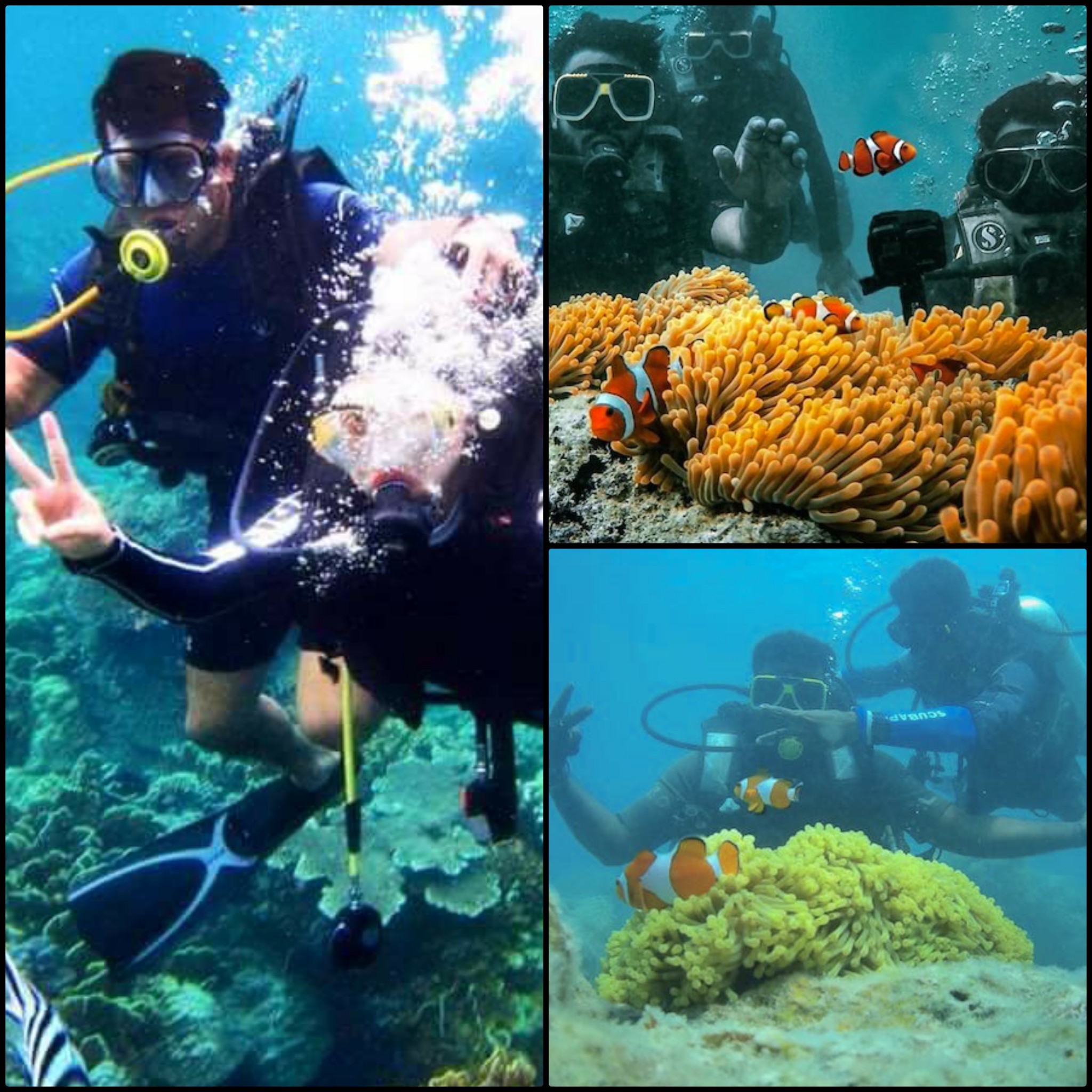Water Sports Details
Scuba diving
3,500
Per Person
Overview
Introduction: Scuba diving is a captivating water sport that allows enthusiasts to plunge into the ocean's depths and explore its mysterious, vibrant world. Offering a unique and immersive experience, scuba diving provides an intimate encounter with marine life and underwater landscapes.
Description:
-
What is Scuba Diving?
- Scuba diving involves descending below the water's surface to explore the underwater environment. Divers use specialized equipment to breathe and navigate underwater, allowing them to observe marine ecosystems firsthand.
-
Equipment:
- Scuba Tank: A cylinder filled with compressed air that provides divers with oxygen.
- Regulator: A device connected to the scuba tank, allowing divers to breathe the compressed air comfortably.
- Buoyancy Control Device (BCD): A vest-like apparatus that helps divers control their buoyancy by adding or releasing air.
- Dive Mask: Allows clear vision underwater.
- Fins: Aid in propelling and navigating through the water.
- Wetsuit: Provides warmth and protection against the cold and potential hazards.
-
Experience:
- Diving offers unparalleled access to marine environments. Divers can swim alongside fish, glide over coral gardens, encounter larger marine creatures like sharks and rays, and explore underwater caves, wrecks, and other landmarks. The sensation of weightlessness and the enveloping silence, punctuated only by the sound of one's breath, adds to the surreal nature of the experience.
-
Safety:
- Safety is paramount in scuba diving. Proper training, adherence to dive limits, regular equipment checks, and diving with a buddy are crucial practices. Beginners should always dive under the supervision of certified instructors.
-
Certification:
- To scuba dive independently, one usually needs certification from recognized organizations like PADI (Professional Association of Diving Instructors) or NAUI (National Association of Underwater Instructors). These courses teach essential diving skills, safety procedures, and responsible diving practices.
-
Environmental Considerations:
- Scuba divers are often ambassadors for marine conservation. They are taught the importance of buoyancy control to avoid damaging delicate corals and are reminded not to touch or disturb marine life. Collecting souvenirs, like shells or corals, is discouraged to preserve the underwater environment.
Conclusion: Scuba diving is not just a sport; it's an experience that provides an intimate connection with the vast and magical underwater world. Every dive is an adventure, revealing a landscape filled with color, life, and wonder. Whether you're marveling at a rainbow of reef fish, witnessing the graceful dance of a manta ray, or uncovering the secrets of a sunken ship, scuba diving offers a door to a realm that few get to truly know and appreciate.


